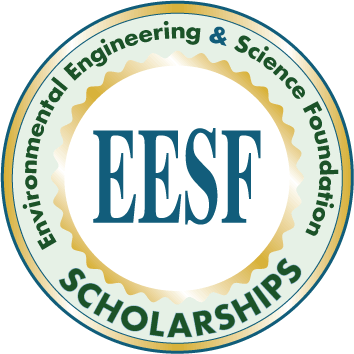W. Wesley Eckenfelder Graduate Research Award
2025 Recipient: Savanna K. Smith, Ph.D.
Faculty Advisor: Francis L. de los Reyes, III, Ph.D., BCEEM, North Carolina State University

Savanna Kalehua Smith earned her BS in Civil Engineering from The University of Texas at Austin in 2019 before joining the Department of Civil, Construction, and Environmental Engineering at North Carolina State University where she completed a PhD under the guidance of Dr. Francis de los Reyes III. Her dissertation focused on microbial community assembly processes of engineered bioreactors. Savanna’s research interests are in applied environmental microbiology and microbial ecology, aimed at addressing the present and future global needs of wastewater treatment and resource recovery. During her time at NC State, Savanna was a Global One Health Fellow, NC Water Resources Research Institute Fellow, and Mentored Teaching Fellow.
Savanna is currently a wastewater process engineer at Brown and Caldwell in San Francisco, California and spends most of her time addressing the new nitrogen removal requirements in the Bay Area. Originally from Kealakekua, Hawaii, she’s thrilled to be back to the Pacific Ocean. Outside of wastewater, she enjoys playing and watching basketball (Go Pack and Hook ‘em Horns!), being in nature, and spending time with friends and family
Past Recipients
Year |
Recipient |
Advisor |
2024 |
Wang, Zichuan (Zach) |
|
2023 |
Kogler, Anna, Stanford University |
Dr. William A. Tarpeh, Stanford University |
2022 |
Nguyen, Duong |
Anthony Straub, Ph.D. |
2021 |
Gao, Jiong |
Dionysios D. Dionysiou, Ph.D., BCEEM |
2020 |
Joseph E. Weaver |
Dr. Francis L. de los Reyes, III and Dr. Joel J. Ducoste, BCEEM |
2019 |
Christopher Lawson |
Katherine McMahon |
2018 |
Andrew Pfluger |
Junko Munakata-Marr and Linda Figueroa |
2017 |
No recipient |
|
2016 |
Dr. Matthew Verbyla |
|
2015 |
Bryan D. Coday |
Tzahi Cath, Colorado School of Mines |
2014 |
Maureen Kinyua |
Sarina Ergas, University of South Florida |
2013 |
Roland Cusick |
Bruce Logan, Pennsylvania State University |
2012 |
Xie He |
Francois de los Reyes, North Carolina State University |
This award is given annually to recognize an environmental engineering or environmental science graduate student whose research contributes to the knowledge pool of wastewater management. The award selection will be based on original, innovative research of publishable quality and other factors as provided below.
Both Master’s and Ph.D. students are eligible. The award will consist of a plaque and a cash honorarium of $1,500.00 for the student and a plaque for the faculty advisor. A $500.00 travel allotment to student recipients who attend the AAEES Excellence in Environmental Engineering and Science awards ceremony will also be provided. This award selection committee is administered jointly by AEESP and AAEES, and is co-sponsored by HDR. Eligible applicants will be judged based on academic program performance (45%), professional or community service (15%), project significance (25%), purpose and goals (10%), and any other evidence provided (5%). An applicant remains eligible up to one calendar year following graduation and receipt of the degree earned.
Electronic nomination packages should include: (1) A letter from the faculty advisor of the applicant, indicating that the applicant has completed all substantive requirements for the graduate degree sought, and has earned a minimum GPA of 3.3/4 in the current program, (2) Two academic letters of recommendation, detailing the contributions of the research to the profession, (3) Copy of a publication (or manuscript submitted for publication) derived from the subject research for which the applicant is the first author – 25 page limit, (4) A professional resume of the student applicant, listing all professional affiliations, publications, honors, service, and relevant experience, and (5) An applicant-prepared statement of professional purpose in pursuing the graduate degree and goals for the first five years of professional practice – (limit 500 words).
Information on where to submit a nomination package can be found here: https://aeespfoundation.org/awards/eckenfelder-graduate-research.
Professor Wesley Eckenfelder, Jr. is considered the “godfather” of industrial wastewater management. He was a great colleague and mentor to numerous practitioners, professors, and students. His prolific contributions to the environmental engineering discipline included writing over thirty books, serving as a principal in several environmental engineering firms, and receiving twenty-eight awards from a wide range of professional societies. In addition, Dr. Eckenfelder was an accomplished professor with a teaching career that included positions at Manhattan College, the University of Texas at Austin, and Vanderbilt University. He was known internationally as an early developer and innovator of biological treatment technology that is now considered a standard skill employed by practicing professionals, worldwide.

